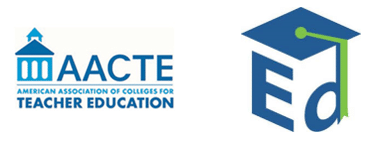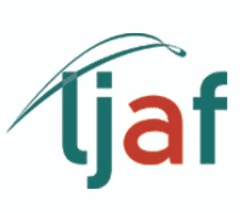10 Jun2019
By Jane E. West
This blog post is written by AACTE consultant Jane West and is intended to provide update information. The views expressed in this post do not necessarily reflect the views of AACTE.
After a 10-day Memorial Day recess, Congress returned for a brief three-day session and then hit the road again. They will roar back into town next week with a plate full of funding issues to address.
- Budget and Appropriations: House on the Move!
The House
Democrats are vigorously exercising their hard-won majority in the House by moving rapidly on spending bills for FY 2020. By early next week all 12 appropriations bills will have moved through Committee markups and be ready to go to the House floor. House leadership has announced its intent to see all 12 bills passed by the end of June!
23 May2019
By Ward Cummings

The Department of Education is seeking Hispanic-Serving Institutions (HSIs) applicants to apply for a portion of a new $24 million developmental grant created to address low completion rates among Hispanic postsecondary students.
This new grant is open to all HSIs that demonstrate a commitment to developing ways to identify and address the strengths and weaknesses of their institution’s enrollment, retention, and support for Hispanic and low-income students. The Department of Education will support projects designed to expand the number of Hispanic students at the undergraduate, graduate, and professional level and that help to facilitate their rates of graduation. HSI programs hoping to use the grant to expand and enhance the academic offerings, program quality, faculty quality, and institutional stability of colleges and universities that serve a majority of Hispanic students are encouraged to apply.
Awards will not exceed $600,000 for a single budget period of 12 months. The deadline for applying for these FY19 awards is July 15, 2019.
Those institutions interested in applying are encourages to visit grants.gov.
Do you have questions about this announcement? Please contact me at wcummings@aacte.org.
20 May2019
By Jane E. West
This blog post is written by AACTE consultant Jane West and is intended to provide update information. The views expressed in this post do not necessarily reflect the views of AACTE.
Today marks the 65th Anniversary of the Brown vs. Board of Education Supreme Court landmark decision that established the principle that separate is not equal. How far have we come? Much to contemplate here. You will see below that a House education panel spoke loud and clear on that topic: we have a long way to go.
- Trump Proposes Taking More Funds from Pell Grants – to Fund Moonshot? Huh?
This week President Trump submitted to Congress some revisions to his original budget request. Notably, he took back the proposed cut he originally made for Special Olympics (after great bipartisan outrage); but he also added a new cut in the form of an additional $1.9 billion to the Pell grant surplus. It appears that the Pell cut would go toward funding the President’s proposed 2024 NASA moonshot! Education advocates were outraged. As Jon Fansmith of the American Council on Education put it: “Do I want to make college more expensive to fund space travel to the moon and Mars?” Hmmmm …
The President had already requested a $2 billion cut in Pell funding. So the total $3.9 billion recission would result in the Pell surplus being exhausted by 2022! This request is likely to be ignored on Capitol Hill, as no one—Republican or Democrat—ever really contemplated cutting Special Olympics. And while the Pell Surplus has been modestly raided in the past, a $3.9 billion cut is highly unlikely.
12 May2019
By Deborah Koolbeck
May has the Congress working hard! The U.S. House of Representatives (House) is moving forward at an intense pace on the 12 appropriations bills, moving the Labor, Health & Human Services, Education, and Related Agencies bill through the full committee first.
What are the funding levels for programs important for the profession? Where are the House and the U.S. Senate on reauthorization of the Higher Education Act? What else is unfolding that could impact the profession? These topics and more will be covered in the AACTE member exclusive May 2019 Federal Update webinar, offered on two different days and at different times of the day to accommodate member schedules. A recording of the webinar and the slides will be posted on the AACTE Advocacy Center’s federal page.
Register for the webinar that fits your schedule:
May 21, 2019 5:00 – 6:00 p.m. EDT
Registration Link
May 22, 2019 11 a.m. – 12 noon EDT
Registration Link
12 May2019
By Jane E. West
This blog post is written by AACTE consultant Jane West and is intended to provide update information. The views expressed in this post do not necessarily reflect the views of AACTE.
I’m downright excited to have some GREAT news to report from Washington! Some of our leaders want to increase the federal INVESTMENT in public education! Hallelujah.
- House Moves Expansive Education Funding Bill through 8 Hour Marathon Mark up
This week Chair of the House Subcommittee on Labor/HHS/Education Rosa DeLauro (D-CT) successfully moved her spending bill out of the full Appropriations Committee. The bill retains its overall 6% increase for education from last fiscal year, bringing the Department of Education to $75.9 Billion, and features significant increases for key education programs.
08 May2019
By Jane E. West
This blog post is written by AACTE consultant Jane West and is intended to provide update information. The views expressed in this post do not necessarily reflect the views of AACTE. To view the full blog, visit janewestconsulting.com.
Congress is back from a two-week recess and education saw a lot of action this week!
- House Subcommittee Marks Up FY 2020 Funding Bill with a 6% Increase for Education!
This week, Rep. Rosa DeLauro (D-CT) began the FY 2020 appropriations process by moving the Labor/HHS and Education bill through the subcommittee. Her first bill as chair of the subcommittee reveals an impressive high-water mark for education spending, raising the federal investment by 6% over last year. Lead Republican on the subcommittee, Rep. Tom Cole (R-OK), noted that he does not think the large increases in the bill will be supported by the Senate or the president and that at best, this disagreement will lead to a year-long continuing resolution or at worst, another government shutdown. Nonetheless, the bill was passed out of subcommittee and will likely be marked up by the full House Committee on Appropriations next week.
06 May2019
By AACTE
The American Association of Colleges for Teacher Education (AACTE) is pleased by the U.S. House of Representatives Committee on Appropriations Subcommittee on Labor, Health and Human Services, Education and Related Agencies’ (Labor-H Subcommittee) draft bill released for Fiscal Year 2020 (FY20) yesterday. Among the programs seeing an increase in funding is the Teacher Quality Partnership (TQP) grant program, the only federal initiative dedicated to strengthening and transforming educator preparation at institutions of higher education.
AACTE members have worked tirelessly to inform Congress about the effectiveness of this program, and the result is now tangible. The AACTE community can take heart, as their voices have clearly been heard on Capitol Hill. The bill in its current form increases TQP by $10 million for a total of $53 million; TQP has been flat-funded at $43.1 million since FY15.
19 Apr2019
By Deborah Koolbeck

The AACTE Federal Update Webinars are back! As April has unfolded, quite a few things have started to bloom and grow in Washington, DC, including the budget and appropriations process. The President’s Fiscal Year 2020 Budget Request was released and the Congress is in full appropriations season. But will the caps on defense and non-defense discretionary funds be raised to avoid deep cuts in programs? What is unfolding with legislation, including the Higher Education Act reauthorization?
We will cover this and more during the AACTE April 2019 Federal Update webinar. Remember there is always time to get your questions answered, and the webinar will be recorded and posted on the AACTE Advocacy Center federal page.
Register Today:
Tuesday, April 23 5:00 – 6:00 p.m. EDT
Wednesday, April 24, 11:00 a.m. – 12:00 noon EDT
12 Apr2019
By Jane E. West
This blog post is written by AACTE consultant Jane West and is intended to provide update information. The views expressed in this post do not necessarily reflect the views of AACTE.
Congress was busy this week trying to wrap a few things up as they enter an extended recess period. With the timeline for the election pressing, the momentum will continue. Remember the first Democratic presidential candidate debate is in June—just two months away! So the pressure is on.
- House Makes Magic Move on Budget!
The Budget Control Act, as it stands now, would require dramatic cuts for education and other programs for FY 2020, which begins October 1. In order to avoid significant cuts to education and other programs, the Budget Control Act needs to be amended to increase the spending caps. While the House Budget Committee adopted new spending caps this week, Democrats were unable to find consensus and bring that provision to the House floor.
But do not despair! Where there is a will there is a way! On Wednesday the House adopted something called a “deeming resolution” which provides for $1.3 trillion for the 12 spending bills in FY 2020. The “non-defense discretionary” portion (which includes education) will be $34 billion over the FY 2019 spending level. This deeming resolution paves the way for Appropriations Chair, Rep. Nita Lowey (D-NY), to divvy up the funding into 12 pots—one for each of the appropriations bills.
05 Apr2019
By Deborah Koolbeck

The U.S. Department of Education has released its Notice of Inviting Applications for the Fiscal Year 2019 Teacher Quality Partnership (TQP) Grants in the Federal Register. TQP is the only federal initiative dedicated to strengthening and transforming educator preparation at institutions of higher education and to meet the workforce needs of high need school districts and schools.
02 Apr2019
By Ward Cummings

The Deeper Dive session, “Too Expensive to Ignore,” held during the AACTE 2019 Annual Meeting explored the many creative ways educators are working to address the high costs associated with becoming a teacher. The panel discussion was moderated by Karen DeMoss, executive director of Prepared to Teach, Bank Street College of Education, and the presenters were Tara Kini, director of state policy at the Learning Policy Institute (LPI); Karen Riley, dean of the College of Education at the University of Denver; Karen Kindle, division chair, Teacher Residency and Education at the University of South Dakota (USD); Jeannie Aversa, coordinator of educator effectiveness at the Syracuse City School District; and Nichole Brown, director of field placement and project director, Teacher Opportunity Corp II at SUNY Oswego. The group of educators engaged in a lively conversation about how to create sustainable funding for teacher residencies.
DeMoss began the discussion with an overview of the reasons solutions to the funding problem are necessary. She shared that attracting diverse candidates to the teaching profession requires a focus on the money matters that teaching candidates care about. For example, 40% of undergraduates and 76% of graduate students work full time, and they incur debt that is often untenable in comparison to the salaries they can expect as teachers.
08 Jan2019
By Deborah Koolbeck
 The U.S. Department of Education (Department) is moving forward with negotiated rulemaking around a large number of issues dealing with federal student financial aid in the Higher Education Act, commonly known as “Title IV,” and AACTE will be at the table. Last fall, the Department put out a call for nominations for negotiators to be part of a full committee and three subcommittees, and this week announced the list of negotiators, which includes 18 AACTE member institutions.
The U.S. Department of Education (Department) is moving forward with negotiated rulemaking around a large number of issues dealing with federal student financial aid in the Higher Education Act, commonly known as “Title IV,” and AACTE will be at the table. Last fall, the Department put out a call for nominations for negotiators to be part of a full committee and three subcommittees, and this week announced the list of negotiators, which includes 18 AACTE member institutions.
The full committee will cover issues around accreditation and innovation, and the subcommittees will advise the full committee on the following issues: faith-based entities, distance learning, and TEACH grants. The first committee and subcommittees sessions will take place next week, January 14–18.
In addition to AACTE member participation, I will be representing the Association and its members on the TEACH grant subcommittee. Negotiators also include a number of AACTE partners. To see the full list of negotiators for the full committee and each of the subcommittees, along with the supporting materials, visit the U.S. Department of Education website.
Would you like to learn more about the law that establishes the processes around negotiated rulemaking? Review the Negotiated Rulemaking Act of 1990, or read a five-page summary of the negotiated rulemaking process.
08 Jan2019
By Deborah Koolbeck

The U.S. Department of Education Office (USDOE) of Career, Technical, and Adult Education, recently published a funding opportunity geared to help improve the outcomes of postsecondary students, specifically underrepresented students. The Laura and John Arnold Foundation (LJAF) has issued a Funding Announcement and Request for Proposals on “Building Rigorous Evidence about How to Improve Postsecondary Success.”
According to the USDOE newsletter, “LJAF is interested in funding research and evaluation projects testing interventions related to postsecondary success (including student learning, persistence, completion, time to completion, job placement, and post-college earnings). They are particularly interested in interventions that promise to improve success among underserved students, such as low-income students, students of color, adult students, and veterans. LJAF has committed up to $10 million for these grants.”
Letters of Interest are due by January 31, 2019.
(Please note: AACTE is sharing this opportunity; it is not an endorsement of the foundation or its work.)
To stay abreast of other funding opportunities and updates, subscribe to the USDOE newsletters.
11 Dec2018
By Deborah Koolbeck
The U.S. Department of Education (Department) announced that it will allow TEACH grant recipients who met or are meeting their TEACH grant service requirements and had their grant converted to a loan to have this conversion reconsidered. While there are no details yet, the TEACH Grant webpage states that the Department will share its process for reconsideration by January 31, 2019. This is available only for those recipients who were meeting the requirements and had their loans converted due to noncompliance with the certification requirements.
During the course of the year, stories have arisen of TEACH grants being erroneously converted by the servicer, FedLoan. While the Department is moving into negotiated rulemaking on the TEACH grants starting in January, it is taking action in the meantime to change processes to protect recipients. In addition to reconsideration, the Department is also making a universal annual certification deadline of October 31, starting in 2019.
19 Nov2018
By Deborah Koolbeck

With the election over, Congress returns to Washington, D.C. to wrap up the year—and for some members, their time in Washington. As the U.S. House of Representatives and U.S. Senate start the lame-duck session, some attention is turning to the 116th Congress that begins in January.
With Congress finishing the Labor, Health & Human Services, Education and Related Agencies appropriations bill on time (September 30), it is important to remember that a large portion of the federal government is operating under a Continuing Resolution (CR). With a deadline of December 7, the CR brings with it contention and the potential for a government shutdown. It is also unclear what else the Republican majority will want to do in the last weeks of its leadership in the House and what the Senate can get done as well.











 The U.S. Department of Education (Department) is moving forward with negotiated rulemaking around a large number of issues dealing with federal student financial aid in the Higher Education Act, commonly known as “Title IV,” and AACTE will be at the table. Last fall, the Department put out a call for nominations for negotiators to be part of a full committee and three subcommittees, and this week announced the list of negotiators, which includes 18 AACTE member institutions.
The U.S. Department of Education (Department) is moving forward with negotiated rulemaking around a large number of issues dealing with federal student financial aid in the Higher Education Act, commonly known as “Title IV,” and AACTE will be at the table. Last fall, the Department put out a call for nominations for negotiators to be part of a full committee and three subcommittees, and this week announced the list of negotiators, which includes 18 AACTE member institutions.
